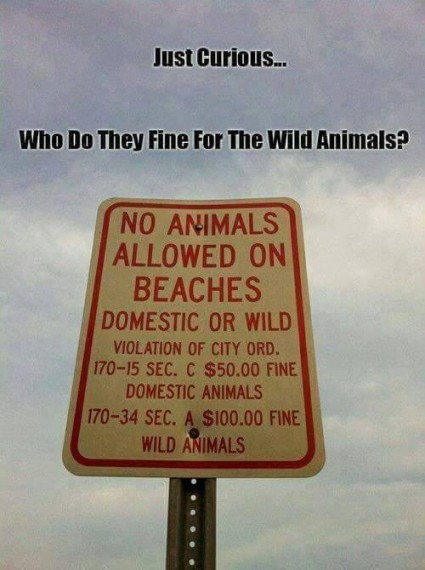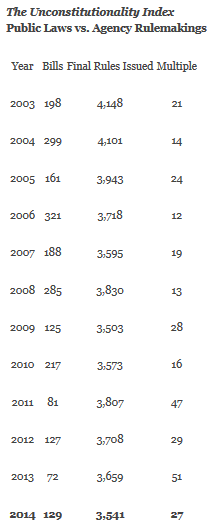October 19, 2015
By: Bobby Casey, Managing Director GWP

Collecting the metadata of individuals who are not suspected criminals or terrorists at all? What was that about? Is it some pre-crime thing like that movie “Minority Report”? It’s not about IF you commit a crime, but WHEN. It’s as if the federal government were amassing information about each of us “just in case” they needed to build a case against us.
It’s said that Americans commit three felonies per day on average. If you google just that phrase alone, you’ll find countless articles pertaining to unwitting individuals who found themselves ensnared in a web of legal infractions. The laws are deliberately written with broad and vague language, and that net casts far and wide. Often those who are not well-connected get tangled up in it more so than those who are.
It’s not just the spying and the laws, though. This is a three pronged approach, after all. The regulations that supplement the laws are like little trip wires and landmines. The Competitive Enterprise Institute does an annual analysis of laws to respective regulations. (For some unknown reason, the efficiency of congress is gauged by how many laws it can pass per year. Ironic that the efficiency of government is assessed by how inefficient it can make the rest of the country.)
CEI takes the number of laws passed per year and divides that into the number of regulations also created in the same year, giving a rough estimate of how many regulations per law are added to the books per year.
What does all translate into for you and me? There is a great interactive tool that the folks at the Mercatus Center at George Mason University created called RegData. Overall, their findings lead to this summation: “As of 2012, there are 1,040,940 restrictions in the Code of Federal Regulations. Restrictions have grown 28.10% since 1997.” This is a tally of how many times the words “must”, “cannot”, or “shall” occur in the verbiage. America has been told in over a million ways what it can and cannot and must do, basically… and that’s just in that 15 year time period.
Disgusted yet?
Honestly, the more I read about it, the more I am amazed that businesses are still in operation in the United States! How do they do it? They put their necks on the line almost as much as someone operating in the black market. At least those operating in the black market have the clear advantage of knowing that everything they are doing is either in fact, or in all likelihood, illegal. Those operating above the line do so believing they are coloring within the legal lines; that they are playing by the rules. Little do they know…
So while the black marketer is taking every precaution not to get caught, their legal counterparts are taking painstaking precautions to follow every ordinance, lest they get caught and prosecuted, too. Having a long list of do’s and don’ts is tedious unto itself. That these line items often don’t agree with one another is downright crazy.
“For instance, the National Labor Relations Board has just issued a definition of independent contractor that differs from the definition put out by the Labor Department, which is different from the definition of the Internal Revenue Service,” observes Jared Meyer of the Manhattan Institute.
When you have conflicting regulations how can they both be enforced equally and/or fairly? The short answer is they can’t.
The Institute for Justice took on a case that more than illustrates this point. A licensed psychiatrist from North Carolina, John Rosemond, had one of the longest running syndicated advice columns in the United States. His distribution was in more than 200 newspapers throughout the country. He’s not licensed in Kentucky, however. Kentucky decided to issue a warning/threat that he cease publication of his column in their state.
If an expert in a given field offering their opinion to people outside their state of licensure really posed a risk to public safety, then, as IJ rightly argued, Kentucky would have issued a similar order to the likes of Dr. Drew, Dr. Phil, and Dr. Oz.
If I dare suggest that the markets be emancipated from the shackles of state regulation, I’m bombarded with end-time scenarios where large corporations are dumping toxic waste into our drinking water and some scorched earth situation where the entire world has been clear cut from pole to pole.
But we have regulatory agencies now, and these things are still happening. So while I’m all for sustainable methods of resource consumption, the fact is, government regulations and their agencies do not actually help in that effort. I certainly understand the more righteous intentions behind regulations: wanting to keep people safe from irresponsible actors in the marketplace. We are all consumers, so we all have some skin in that game. But it is only fair to ask that the solutions adequately address the problems.
There has been a catch phrase floating around in various political discussions: “common sense regulations/laws”. That sounds agreeable, right? Common sense! Well, if common sense is the filter through which we run our laws and regulations, then a good number of both would be sifted out and trashed.
John Hood, Research Director for the John Locke Foundation, found that many of the licensure laws ultimately offer no real benefits to consumers at all, just higher prices with no improvement in quality of goods or services. Licensing and other regulations per industry create a financial barrier to entry for those who can’t afford to pay to play. That means we as consumers aren’t getting all the choices the market has to bear, only the ones who can afford it. Being able to afford licensing or compliance measures is not indicative of the quality of goods or services that person will offer.
By limiting competition, one of the major unintended consequences is that quality is inevitably compromised. Established operators in the industry have a spigot that controls how many people enter into the circle of competition… as well as how many can afford to stay there. Where is the incentive to offer competitive pricing or quality?
There was a definite correlation found between the lack of choices in certain industries and the number of problems arising due to lack of services to meet the demand. For instance, higher number of rabies cases in jurisdictions where veterinary practices are more heavily regulated; and more harm and deaths due to electrical problems where electrician licensure is more difficult.
This clearly is more about control than quality. To what end, I can’t say, other than to make a more complacent society who is content with mediocrity.
The market is capable of regulating itself. In the age of Google, Yelp, TripAdvisor, and Angie’s List, it’s damn near impossible to provide poor service and get away with it entirely. Perhaps the punishment isn’t in the form of jail time or fines, but rather that no one will engage in commerce with you and you just lose your business.
Free the markets. Let the consumers figure out what they like, don’t like, will or won’t tolerate. We have a right to as many choices as the market will offer. Alternatively, people in desperate enough need will find a way around them. Rather than calling a contractor, they will do it themselves with some tools and a Youtube video on how-to. Doing things ourselves makes sense for somethings and some people, but outsourcing our needs has its efficiencies and benefits.
If you worked hard to start a business and want to protect it, or the wealth you’ve created from that business, it’s time to talk. Click here to schedule a consultation today.


